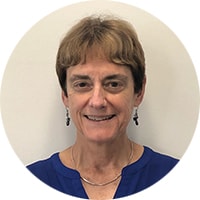In this presentation, the Detection of Antimicrobial Resistance and what is relevant for today’s Microbiology Lab in the COVID Era will be discussed. Much focus has been in the microbiology laboratory these past two years – due to COVID. However, antibiotic resistance has not diminished. In fact, with the more frequent usage of antibiotics for both inpatients and outpatients, antibiotic resistance has increased.
Emerging antimicrobial resistance continues to be a critical issue in today’s COVID-Era healthcare environment. Topics examined include new mechanisms of resistance, particularly in Gram-Negative bacteria, what are current patterns of antibacterial resistance, and has the epidemiology changed? The microbiology laboratory has many ways to test for antimicrobial resistance, including phenotypic and genotypic testing. Topics examined include the importance of MICs as well as detection of resistance in antibiotic susceptibility testing.
Learning objectives:
- What are the important antibiotic resistances today and have they changed? The webinar will focus & review resistance in Gram-Negative bacteria, particularly to carbapenems.
- What are the important antibiotic resistances today and have they changed? The webinar will focus & review resistance in Gram-Negative bacteria, particularly to carbapenems.
- What is the difference between testing for resistance and testing for susceptibility? What are some newer methods for testing in the laboratory?
- What is the importance of MICs?
- What is the role of the laboratory in antibiotic stewardship now?
About the speaker

Barbara L. Zimmer, Ph.D.
Principal Scientist, Scientific Affairs Beckman Coulter MicroScan
Dr. Zimmer is currently Principal Scientist, Scientific Affairs, for Beckman Coulter MicroScan. She was a Lecturer in Mycology and Infectious Diseases at the University of California, Davis, School of Medicine in the Department of Dermatology for 30 years. She is also past President of the Medical Mycological Society of the Americas. Barbara L. Zimmer
She received her B.S. degree at the University of Evansville, Indiana, her M.S. at the University of Kentucky, and her Ph.D. in Microbiology at the University of California, Davis. She also worked in research at Mayo Clinic and authored over 30 papers, 130 posters, and has presented over 100 scientific talks and workshops. Dr. Zimmer is also the recipient of Dade Behring's Technical Fellow award and the Siemens Senior Technical Expert award.
Dr. Zimmer was a voting member of the CLSI Subcommittee on Antimicrobial Susceptibility Testing and currently is on the CLSI Board of Directors. She is chair or co-chair of several industry Working Groups and was previously Industry Advisor to the Microbiology Devices Panel of the Food and Drug Administration.
About the moderator

Zakaria Hadha, M.Sc. Microbiology Product Manager
Middle East & Africa, Beckman Coulter
Zakaria Hadha is currently the Microbiology Product Manager for Beckman Coulter Middle East & Africa. Prior to that he was responsible of the application and sales support for our customers and channel partners across the Mediterranean region. Zakaria Hadha
Zakaria holds an M.Sc. In Microbiology and Bio-Engineering from the University of Sciences and Technics in Mohammedia-Morocco. He received his Master’s degree in Marketing and Business Development at the National School of Business and Management, Settat. Before joining Beckman Coulter, Zakaria worked in the National Institute of Hygiene, Agro-food Laboratory, where he collaborated in several research projects.
 English
English


